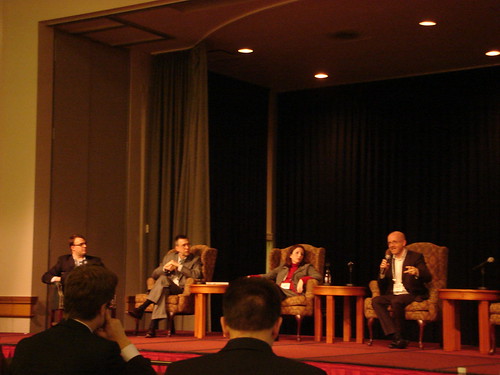Help us protect the commons. Make a tax deductible gift to fund our work. Donate today!
The last two days I attended the Tech Policy Summit Silicon Valley. While the panels discussed important issues that impact the technology industry (including privacy, security, immigration, taxes, trade, networks, patents, and of course copyright), I got a distinct feeling of Washington, D.C. transported to San Jose, California — discussion (and fashion) constrained by the possibilities or lack thereof of near-term politics. Mike of Techdirt has more coverage.
The major exception was a familiar panel featuring web 2.0 regulars Dave Sifry of Technorati, Reid Hoffman of LinkedIn, Jonathan Abrams of Socializr and Jay Adelson of Digg, moderated by Kara Swisher. Many thanks to Jay Adelson for leading off by saying (in more words) that Creative Commons is the future. I’ll reciprocate here by saying that Digg (as representative of bottom-up content discovery, filtering and tastemaking) is a big part of the future of Creative Commons. But this panel didn’t really discuss policy.
Today it was refreshing to return to Creative Commons (not that I ever left — the wifi was good), where we help expand practically available copyright options with both more immediate impact and a longer horizon than can be had within an election cycle.
This is not at all to criticize the conference organizers. To the contrary, the technology industry probably needs to engage the political culture (a recurrent theme at the summit), and the same is probably true for those who care about technology policy but are not formally in the industry.
Here’s a photo (CC BY) of the second least foreign panel, featuring Declan McCullagh (moderator), Jim Dempsey of the Center for Democracy and Technology, Lauren Gelman of the Stanford Center for Internet and Society, and Andrew McLaughlin of Google:
Bodo Balazs of Stanford CIS and a project lead of CC Hungary was also present.
Posted 28 February 2007